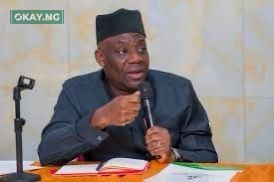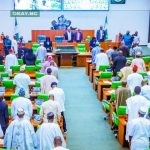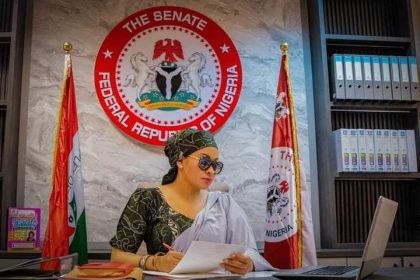The Nigerian Federal Government has unveiled a comprehensive plan to revitalize its education system, with a key focus on infrastructure and technological integration. By 2027, the government intends to reconstruct 195,000 classrooms across the nation, aiming to provide a more conducive learning environment.
During a recent ministerial press briefing in Abuja, the Minister of Education, Dr. Tunji Alausa, outlined the government’s strategic vision for enhancing educational access and quality.
He emphasized that these initiatives are designed to strengthen the foundation of learning for all Nigerian students.
In addition to classroom reconstruction, the plan includes the installation of 28,000 new toilets and the drilling of 22,900 boreholes in schools, addressing essential sanitation and water needs. The government also plans to construct 7,000 entirely new classrooms and distribute 103 million textbooks to support teaching and learning.
A significant aspect of the government’s strategy is the promotion of vocational and technical education. President Bola Tinubu has allocated N120 billion to support student entrepreneurship in these fields. Dr. Alausa explained that a “value chain” approach will be adopted, providing practical training to artisans through a dual-mode system combining classroom learning with hands-on workshop experience.
Addressing the long-standing issue of the abandoned national library project, Dr. Alausa announced that President Tinubu has committed N40 billion to resume construction, aiming to create a vital resource for academic and research purposes.
To further strengthen the education sector, the Ministry of Education has established committees to review national education, language, and almajiri policies. Additionally, the government is committed to integrating 10 million out-of-school children into the formal education system. Targeted programs are being developed to address the diverse barriers these children face, including poverty and cultural challenges.
The government is also embracing technological advancements in education. By 2027, national examinations will be conducted entirely via computer-based testing. Furthermore, the integration of artificial intelligence (AI) into the education system is underway, with a focus on enhancing teaching and learning while preserving the role of educators. Platforms providing detailed information on tertiary institutions and admissions are also being implemented.
Dr. Alausa highlighted the ministry’s vision of AI as a tool to augment, rather than replace, human educators. Plans include the use of AI for smart content creation, virtual and augmented reality, gamification, data-driven insights, predictive analytics, assistive technology, and personalized learning through AI chatbots.
These initiatives represent a substantial investment in Nigeria’s education sector, signaling a commitment to improving infrastructure, access, and quality for all students.







